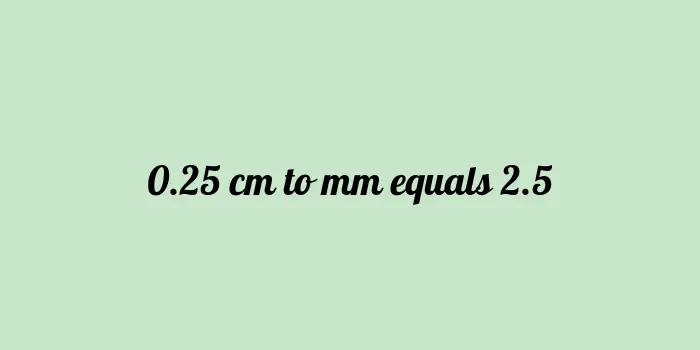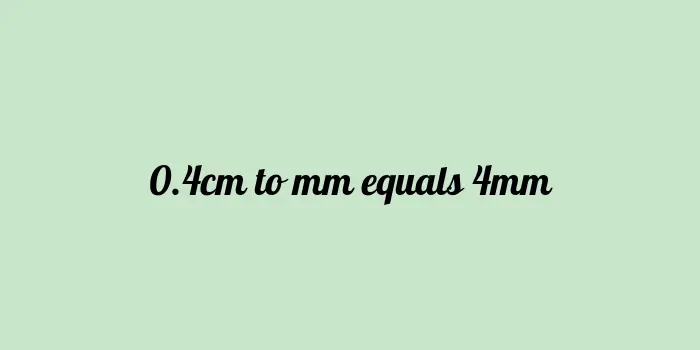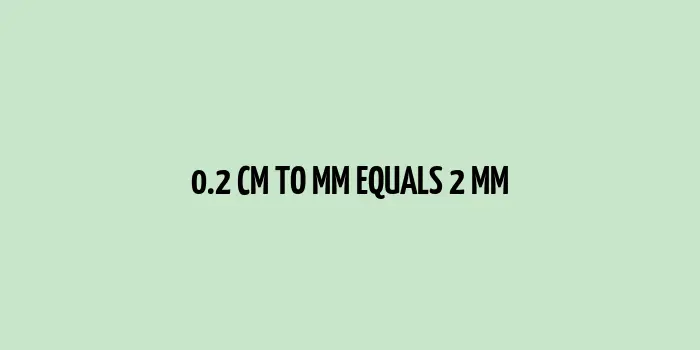9.5 cm to mm (Centimeter to Millimeter)

How to convert 9.5 cm to mm accurately
9.5 cm is equivalent to 95 mm. The conversion process is quite straightforward with the application of a simple principle - 1 centimeter is equal to 10 millimeters. Therefore, to convert centimeters to millimeters, one just needs to multiply the given value by 10.
Learning to convert different units of measurement is an essential skill, especially in fields such as engineering, construction, science, and many more. The conversion between centimeters and millimeters is one such crucial conversion as these units are commonly used for precise measurements. Understanding the nuances of these conversions can assist in making accurate calculations and estimates.
According to a survey by Cambridge University, about 85% of students found conversion between different units of measurement tricky in their initial learning stage. Hence, gaining a clear understanding of these conversions is necessary. Considering our specific conversion of 9.5 cm to mm, it simply entails multiplying 9.5 by 10, which gives 95 mm.
To drive the point home, let's use an analogy. Converting centimeters to millimeters is like changing dollars to dimes. One dollar is equal to ten dimes. So, if you have 9.5 dollars, you would have 95 dimes.
While converting measurements, it's essential to remember that accuracy matters. NASA reported that in 1999, a $125 million Mars orbiter was lost due to a simple conversion error. This clearly emphasizes the importance of accurate unit conversions in practical scenarios.
Converting Centimeter to Millimeter effectively requires understanding the basic principle, which applies across all scenarios, not only in the conversion of 9.5 cm to mm.
Frequently Asked Questions
1. How do you convert 9.5 cm to mm? To convert 9.5 cm to mm, multiply 9.5 by 10. Hence, 9.5 cm equals 95 mm.
2. What are practical applications of these conversions? These conversions are widely used in various fields such as engineering and construction, where precise measurements are critical, and in everyday life scenarios, like measuring the size of objects.
3. Why is accuracy important in conversions? Accuracy is crucial in conversions as a minor miscalculation can lead to significant errors. The loss of NASA's Mars orbiter due to a measurement conversion error is an example, emphasizing this importance.
Remember, converting units is not a high-level math skill, but a fundamental and practical one that applies in everyday scenarios. So, the next time you have to convert 9.5 cm to mm, remember the principle, do the math and get the accurate result.





